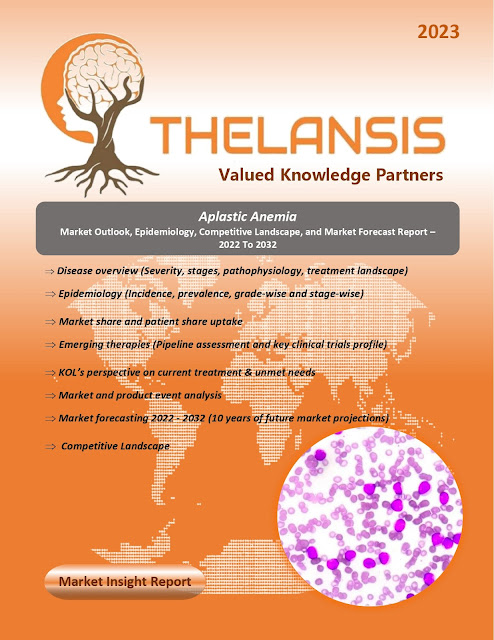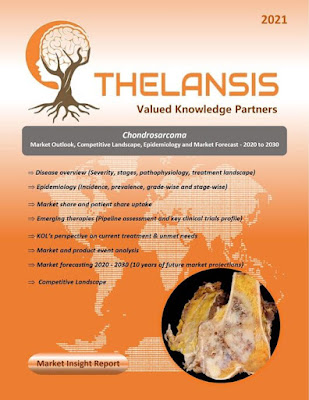Aplastic Anemia – Market Outlook, Epidemiology, Competitive Landscape, and Market Forecast Report – 2022 To 2032
Aplastic anemia is a syndrome characterized by chronic primary hematopoietic failure due to injury resulting in reduced or absent hematopoietic precursors in the bone marrow, leading to pancytopenia. The onset occurs over weeks or months after exposure to a toxic agent, although it can occasionally be acute. Its symptoms include weakness, easy fatigability, ecchymosis, petechiae, and bleeding from the gums into the conjunctivae. Fanconi anemia is the most prevalent hereditary cause, presenting in the late first decade with pancytopenia, organ hypoplasia, and bone defects such as abnormal radii, absent thumbs, and short stature. The most frequent etiology is idiopathic, accounting for 65% of cases. Seronegative hepatitis accounts for 5-10% of cases, while telomerase defects are found in 5-10% of adult-onset aplastic anemia. Patients who undergo bone marrow transplantation from a suitable donor have a five-year survival rate of over 75%. Most untreated patients die within one year due to disease-related complications, such as bleeding, infections, or transformation to lymphoproliferative disorders. The most common complications of aplastic anemia are managed through surveillance and symptomatic treatment, including antibiotics, chemotherapy, and transfusions.
·
Aplastic anemia in the USA is estimated to be
2 cases per million annually.
Thelansis’s “Aplastic Anemia Market
Outlook, Epidemiology, Competitive Landscape, and Market Forecast Report – 2021
To 2032" covers disease overview, epidemiology, drug utilization,
prescription share analysis, competitive landscape, clinical practice,
regulatory landscape, patient share, market uptake, market forecast, and key
market insights under the potential Aplastic Anemia treatment modalities
options for eight major markets (USA, Germany, France, Italy, Spain, UK, Japan,
and China).
KOLs insights
of Aplastic Anemia across 8 MM market from the centre of Excellence/ Public/
Private hospitals participated in the study. Insights around current treatment
landscape, epidemiology, clinical characteristics, future treatment paradigm,
and Unmet needs.
Aplastic Anemia Market Forecast Patient
Based Forecast Model (MS. Excel Based Automated Dashboard), which Data Inputs
with sourcing, Market Event, and Product Event, Country specific Forecast
Model, Market uptake and patient share uptake, Attribute Analysis, Analog
Analysis, Disease burden, and pricing scenario, Summary, and Insights.
Thelansis Competitive Intelligence (CI) practice
has been established based on a deep understanding of the pharma/biotech
business environment to provide an optimized support system to all levels of
the decision-making process. It enables business leaders in forward-thinking
and proactive decision-making. Thelansis supports scientific and commercial
teams in seamless CI support by creating an AI/ ML-based technology-driven
platform that manages the data flow from primary and secondary sources.


Comments
Post a Comment